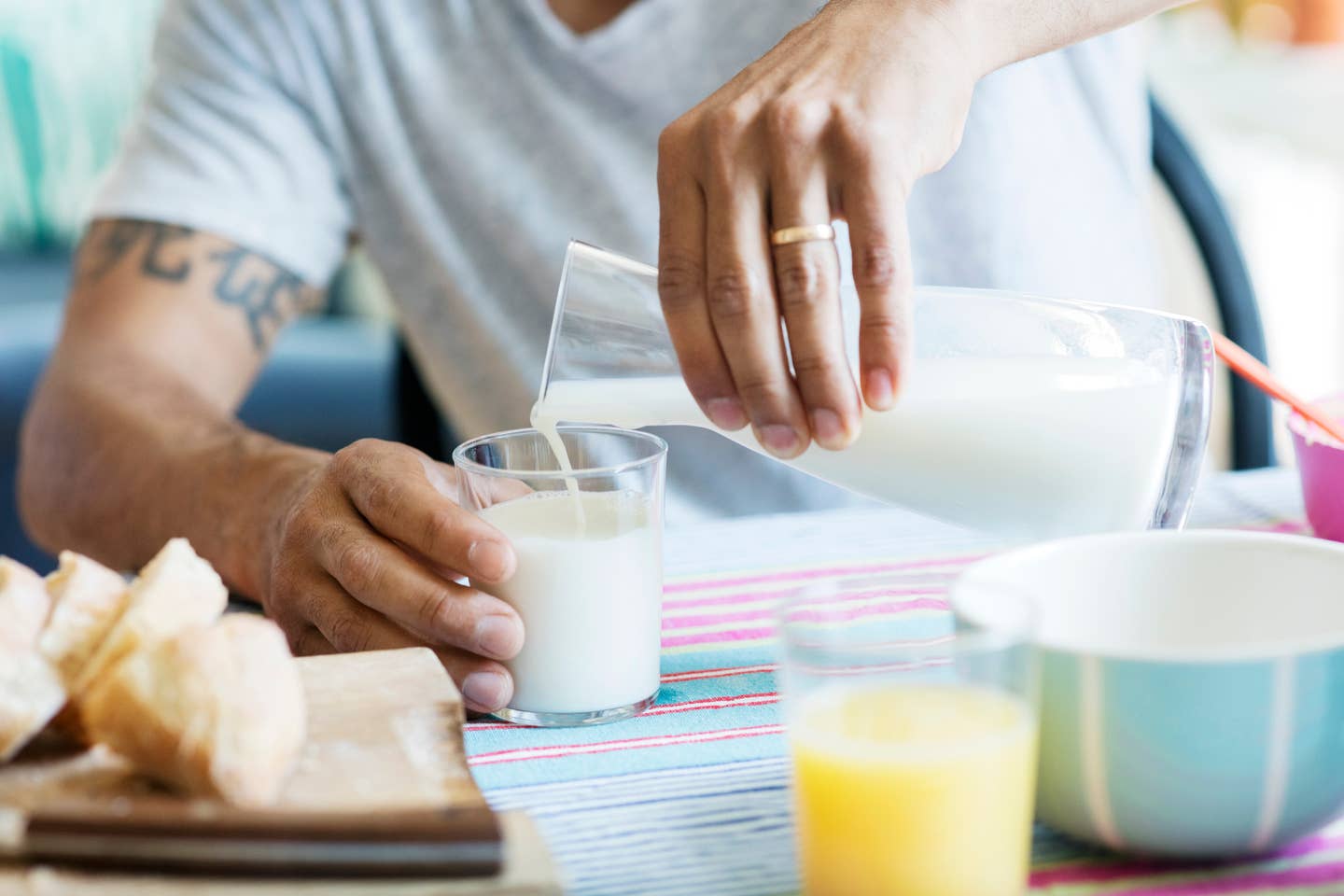
Can Dairy Cause Acne and Skin Issues? Here’s What Experts Had to Say
Is there a connection between what you eat and skin breakouts? According to doctors, there is strong evidence that points to yes. One of the culprits at the top of the breakout-suspect list is dairy. We interviewed a wide range of experts, from a variety of medical doctors to board-certified dermatologists, to get to the bottom of dairy and its connection with acne.
Two Servings of Dairy Can Raise Your Chance of Acne Outbreaks
“Put simply, hormone imbalances can trigger acne,” says Jonar de Guzman, M.D., a board-certified physician in Internal Medicine with a Lifestyle Medicine certification. “It’s why we see acne so often in teens throughout puberty during their adolescent years. Apart from these growth periods, our hormones are very much influenced by foods, with dairy being one of them. So, if we are eating dairy products, which invariably affects our hormones, this can lead to breakouts.” Dr. Jonar points to two Harvard studies that looked at the link between dairy consumption and acne, focusing on 6,000 girls and 4,200 boys over time.
What they found was that two or more milk servings a day translated to an approximately 20 percent higher chance of acne outbreaks, as compared to those who avoided milk. Another study in 2005 linked dairy milk to acne by the trace hormone derivatives found in milk. These hormones can be converted in hair follicles to DHT (dihydrotestosterone), which is thought to be the main trigger for acne.
Naana Boakye, M.D. a board-certified dermatologist based in New Jersey who has an acne program and skincare bootcamp for her clients has seen first-hand how diet can impact skin health and acne. Dr. Boakye points out that her clients are often surprised to learn how much food can actually impact the skin. Reduced-fat milk and skim milk specifically ca cause acne due to its processing, she says. Whey, a dairy protein, is also an acne culprit. Sugary and processed foods can trigger or inflame acne, she explains since it is essentially an inflammatory condition. Boakye recommends leaning towards a more balanced and plant-based diet to see how your skin reacts.
Dairy Is Linked to Skin Conditions Such As Dandruff and Eczema
Registered Dietitian Nutritionist Mor Levy Volner has seen a connection between dairy and other skin conditions. “Dairy consumption absolutely impacts skin, not only in breakouts [and] acne, but I have even seen people resolve dandruff and eczema when changing their diet and no longer consuming dairy,” says Levy Volner. “While I have seen many first-hand experiences of how much dairy negatively impacts my clients, there is also research to support this too."
Levy Volner points to a study, published in 2018 on PubMed.gov, that concluded dairies, such as milk, yogurt, and cheese, were associated with an increase or cause of acne in individuals 7-30 years of age. “I always tell my clients when they use creams for acne or breakouts or skin issues that if the underlying issue is hormonal — induced by diet — it would be equivalent to putting a bandage on a broken bone. It won't fix the underlying issue, which is that their body does not do well with dairy.”
Your Skin Reflects Your Body's Health
Skin is the largest organ in the body so it makes sense that it reflects the health of our bodies as Dr. Anne Beal, a medical researcher and founder of AbsoluteJOI skincare, points out. “From a medical point of view, your skin can show if you have high cholesterol, diabetes, or certain infectious illnesses. So, yes, what goes on in your body reflects directly on the health of your skin,” Dr. Beal notes. “While people always talk about the importance of drinking water, poor eating habits, the amount of stress in your life, and lack of sleep can all be seen on your skin.” This question about acne, Dr. Beal explains, was something people used to think was a myth, but science has really provided a clear picture that there is absolutely a link.
Beal notes that this includes all kinds of milk, for example, low-fat, skim, 2 percent, etc. The research that looks at other dairy products like cheese and yogurt has more mixed results, with some studies showing it does cause acne and others showing it does not. “But the bottom line is everybody is different and if you have acne, it doesn’t hurt to eliminate dairy from your diet to see if it helps your skin,” says Dr. Beal.
There are other reasons to eliminate dairy according to Dr. Jonar. “Besides hormone exposure, dairy’s other potentially harmful effects on our bodies come from the saturated fat in dairy products. For example, dairy cheeses typically contain around 70 percent saturated fat. In fact, dairy consumption is one of the leading sources of saturated fat in the Standard American Diet. Repeated consumption of saturated fat over time greatly increases the risk for heart disease, which is the number one killer of both men and women in the United States.”
Dr. Jonar also indicates that in addition, lactose, a sugar present in milk, is implicated infertility problems as well as ovarian cancer. “Drinking milk can also boost your IGF-1 (Insulin-like Growth Factor-1) levels, for which IGF-1 is linked to prostate cancer and breast cancer. Lastly, milk proteins have been observed as a common trigger for an array of inflammatory conditions such as joint pain, asthma, and certain autoimmune diseases. Basically, dairy does a body more harm than good.”
More From The Beet






